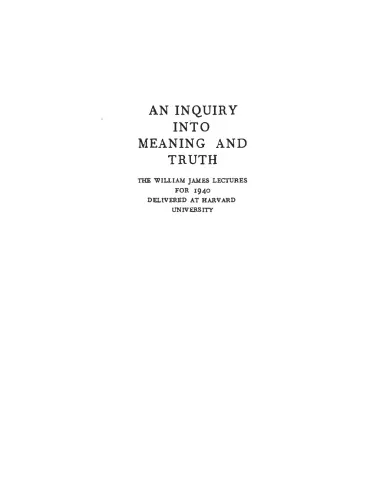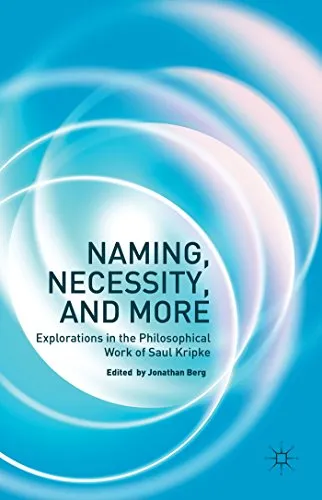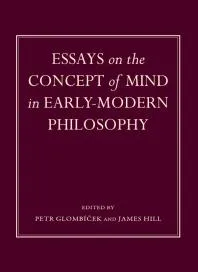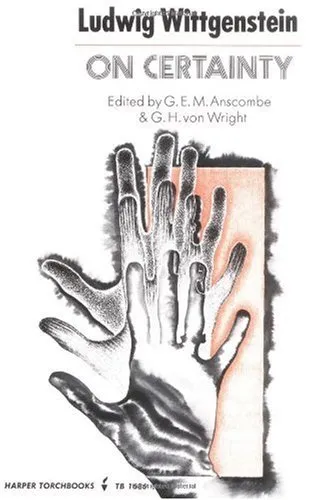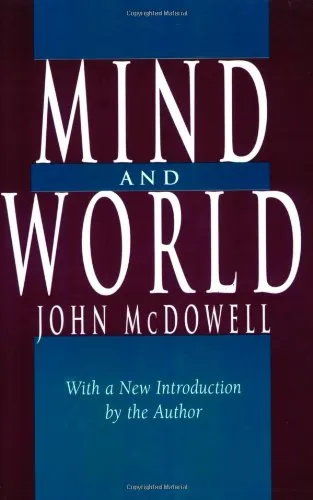The Web of Belief
4.5
بر اساس نظر کاربران

شما میتونید سوالاتتون در باره کتاب رو از هوش مصنوعیش بعد از ورود بپرسید
هر دانلود یا پرسش از هوش مصنوعی 2 امتیاز لازم دارد، برای بدست آوردن امتیاز رایگان، به صفحه ی راهنمای امتیازات سر بزنید و یک سری کار ارزشمند انجام بدینکتاب های مرتبط:
معرفی کتاب "The Web of Belief"
این کتاب اثری از W. V. Quine و J. S. Ullian است که به بررسی ساختار اعتقادات و چگونگی شکلگیری آنها میپردازد.
خلاصهای جامع از کتاب
کتاب "The Web of Belief" یک اثر فلسفی مبسوط است که به بررسی ماهیت اعتقاد و چگونگی تعامل آن با مجموعه دانشهای بشری میپردازد. نویسندگان استدلال میکنند که باورهای ما به صورت یک شبکه به هم پیوسته وجود دارند و هیچ باور منفردی نمیتواند به صورت مستقل در نظر گرفته شود. این شبکه از اعتقادات بر اساس اصول منطقی و تجربی ساخته شده و همواره در حال اصلاح است.
Quine و Ullian استدلال میکنند که اصلاحات در شبکه اعتقادی زمانی رخ میدهد که با تجربیات جدید یا تضادهای داخلی مواجه شویم. این کتاب به بررسی فرآیندهایی چون Observational Data، Confirmation، و Hypothesis Testing میپردازد و تلاش میکند تا نشان دهد چگونه علم و فلسفه میتوانند به شکلدهی شبکه اعتقادی کمک کنند. در واقع، این کتاب تلفیقی از تحلیل فلسفی و روششناسی علمی است.
نکات کلیدی
- اعتقادات به صورت یک شبکه پیچیده در ارتباط با یکدیگر هستند.
- هیچ اعتقادی به صورت منفرد قابل بررسی نیست و تمامی اعتقادات تحت تأثیر تجربه و علم قرار دارند.
- اصلاح شبکه اعتقادی یک فرآیند دائمی است که به واسطه تجربیات جدید و تضادهای داخلی انجام میپذیرد.
- Book به اهمیت Observational Data و Confirmation در روند شکلگیری اعتقادات میپردازد.
جملات معروف از کتاب
“Our beliefs form a network, or web, which is constantly being revised and updated in light of new evidence.”
“No belief is completely insulated from revision, and the scientific method is a tool for achieving a more coherent web.”
چرا این کتاب اهمیت دارد
"The Web of Belief" با ترکیب منحصر به فرد فلسفه و روششناسی علمی به مخاطبان نشان میدهد که چگونه اعتقادات ما به هم وابستهاند و چگونه با روشهای علمی میتوانیم آنها را تصحیح و بهبود بخشیم. این کتاب به دانشمندان، فیلسوفان، و هر فردی که به درک بهتر از چگونگی شکلگیری و تغییر باورهای انسانی علاقهمند است، ابزارهای فکری لازم را ارائه میدهد.
اهمیت این اثر در جهان اندیشه به دلیل تلاش آن برای ایجاد پلی میان تفکر فلسفی و روشهای علمی است که درک بهتری از تعاملات ذهنی و دنیای واقعی به ما میدهد. این بررسی جامع از ساختار اعتقادات و چگونگی عملکرد آنها در شبکههای مرتبط به بهبود شیوه تفکر انتقادی و پذیرش تغییرات کمک میکند.
The Web of Belief: An Introduction
Welcome to an exploration of the intricate tapestry that is human cognition and understanding, as articulated in "The Web of Belief" by W. V. Quine and J. S. Ullian. This book is a profound inquiry into the nature of knowledge and belief, illustrating how our understanding of the world is neither isolated nor linear but rather interconnected in a complex web of beliefs.
Detailed Summary of the Book
"The Web of Belief" serves as an intellectual odyssey into the philosophical examination of how beliefs are formed, connected, and revised. Quine and Ullian delve into the dynamic and fluid nature of knowledge through a systematic exposition of how our beliefs interact and support one another, creating a web-like structure.
The authors begin by proposing that beliefs are not held in isolation but in conjunction with other beliefs, forming a cohesive network. Each belief is interdependent, and changes in the surrounding web require adjustments to maintain consistency. Quine and Ullian explore various processes such as perception, coherence, and pragmatic utility that contribute to belief formation and modification.
The book further unfolds the concept of evidential support, criteria for truth, and how experience plays a crucial role in shaping our understanding. It provides philosophical insights into confirmation theories and addresses the challenges posed by scepticism and conflicting evidence.
Key Takeaways
- Beliefs are interconnected in a web-like structure where each belief supports and is supported by others.
- Our understanding of the world is based on perception, coherence, and pragmatic considerations.
- Changes in one part of the web of belief necessitate adjustments in other parts to maintain logic and consistency.
- Evidential support and empirical data are crucial in the confirmation and revision of beliefs.
- Philosophical inquiry into the processes of belief formation is essential to understanding the nature of knowledge.
Famous Quotes from the Book
Quine and Ullian's book is peppered with thought-provoking observations and insights. Here are a few notable quotes:
"The edge of the system must be kept squared with experience; the rest, with itself."
"Our recourse to the totality of our beliefs as an interdependent whole makes it possible for us, like Robinson Crusoe, to bridge the chasm between input and output, sensation and applied science."
Why This Book Matters
"The Web of Belief" is a seminal text for anyone interested in the workings of human cognition and the philosophy of science. It challenges readers to think critically about their beliefs and the processes through which these beliefs are justified. The book is particularly significant for its contribution to epistemology and the philosophy of mind, offering an accessible yet profound exploration of complex philosophical concepts.
In our ever-changing world, understanding the dynamic nature of belief systems and how they adapt to new information is crucial. Quine and Ullian provide a framework for considering these ideas, making the book relevant not only to philosophers but also to scientists, educators, and anyone interested in the implications of belief and knowledge.
In summary, "The Web of Belief" is more than a philosophical treatise; it is an invitation to reflect on the intricacies of our understanding and the complex mechanisms that form the foundation of knowledge.
دانلود رایگان مستقیم
شما میتونید سوالاتتون در باره کتاب رو از هوش مصنوعیش بعد از ورود بپرسید
دسترسی به کتابها از طریق پلتفرمهای قانونی و کتابخانههای عمومی نه تنها از حقوق نویسندگان و ناشران حمایت میکند، بلکه به پایداری فرهنگ کتابخوانی نیز کمک میرساند. پیش از دانلود، لحظهای به بررسی این گزینهها فکر کنید.
این کتاب رو در پلتفرم های دیگه ببینید
WorldCat به شما کمک میکنه تا کتاب ها رو در کتابخانه های سراسر دنیا پیدا کنید
امتیازها، نظرات تخصصی و صحبت ها درباره کتاب را در Goodreads ببینید
کتابهای کمیاب یا دست دوم را در AbeBooks پیدا کنید و بخرید
1561
بازدید4.5
امتیاز0
نظر98%
رضایتنظرات:
4.5
بر اساس 0 نظر کاربران
Questions & Answers
Ask questions about this book or help others by answering
No questions yet. Be the first to ask!


